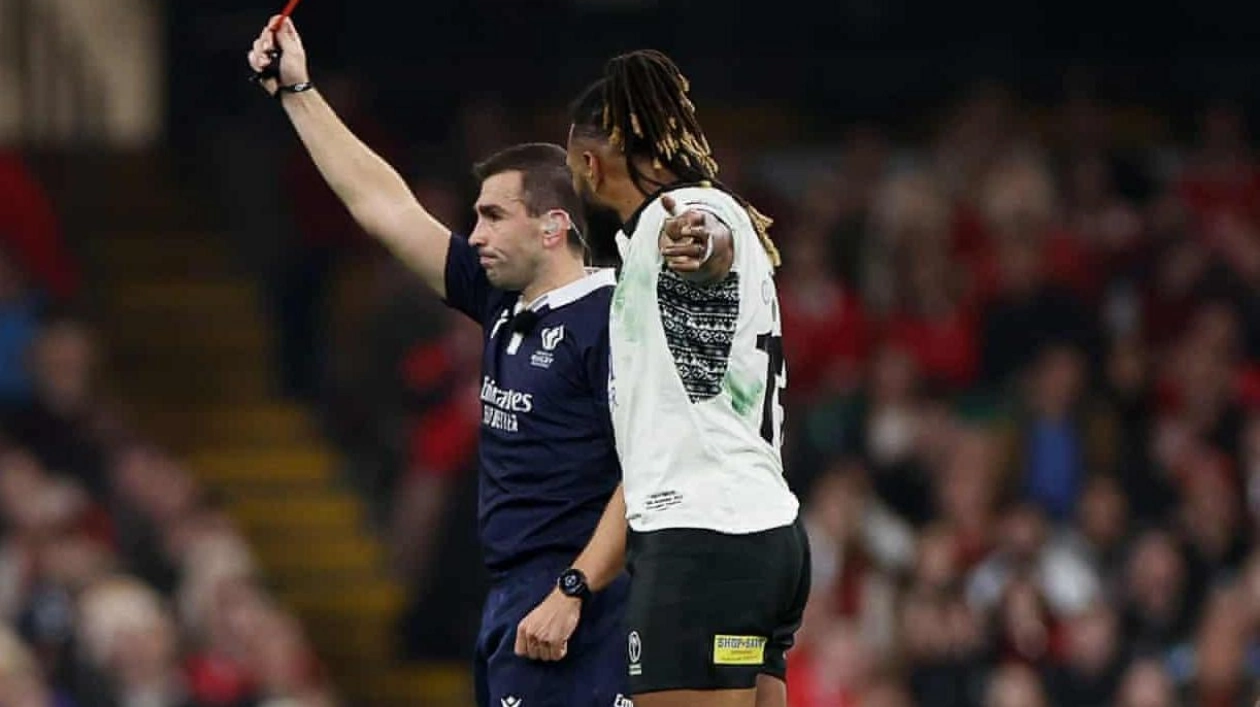This month is packed with significant rugby union events, but one of the most impactful is set to take place in Dublin on Thursday. World Rugby's delegates will cast their votes for a new chair, and the outcome is far from certain, unlike the usual predictable results on such occasions. The race to replace the retiring Bill Beaumont is a three-way contest among Australia's Brett Robinson, France's Abdelatif Benazzi, and Italy's Andrea Rinaldo, with Robinson currently seen as the leading contender. The winner requires 27 votes, and insiders suggest that after the first round eliminates one candidate, Benazzi might secure crucial last-minute support, potentially altering the game's dynamics.
The campaign has already been contentious, with Scotland's John Jeffrey withdrawing after his union withdrew support. Those close to Jeffrey claim Robinson assured him he wouldn't run, only to later change his mind. There seems to be a growing acknowledgment that the old-school, protectionist mindset needs an update. Robinson, who made a fortune in retirement homes in Australia and earned 16 caps for the Wallabies, is well-versed in the game. Australia has recently celebrated a major victory, but Benazzi, born in Morocco and a legendary forward for France, is positioning himself as a candidate for change, advocating for nations outside the traditional Anglo-Saxon elite. He argues that rugby union faces an existential crisis if it fails to explore and nurture new markets, pushing for innovative ways to grow the sport across different cultures.
Benazzi's approach didn't quite work for Argentina's Agustín Pichot in 2020, but rugby's challenges have only deepened since then. It remains to be seen how many northern hemisphere nations will support any dilution of their voting power. Benazzi openly questions the sustainability of the status quo, rhetorically asking, "What happens in four or five years if we continue like this?" It will be intriguing to see the outcome at a time when the sport desperately needs fresh vision. The Rugby Football Union and New Zealand are reportedly backing Robinson, with Italy and Ireland supporting Rinaldo. Notably, Pichot is vying for one of the six other seats on the executive board and may aim for the top job in the future. England's Jonathan Webb is also a potential contender for the vice-chair role.
Beyond the plan to host major games in Qatar for financial gains, the World Rugby Council will consider approving certain law trials, including the 20-minute red card experiment, which was a hot topic in Cardiff and Edinburgh last weekend. This rule, designed for non-deliberate head contact and other serious offenses, allows a player to be replaced after 20 minutes. Fiji's Semi Radradra benefited from this rule, helping his team secure a memorable win over Wales. However, concerns about mixed messages arise. If head contact warrants only a 20-minute sanction, how does this align with World Rugby's player welfare messaging? Is it an acknowledgment that tackle height margins are now so narrow that a midway sanction is necessary? If so, will someone apologize to players like Sam Cane, Beno Obano, and Charlie Ewels for the reputational damage before this realization?
Tackle height restrictions haven't prevented injuries like those sustained by England's Tom Curry and Italy's Ange Capuozzo, both of whom suffered head injuries from low tackles. What if both full-backs at Twickenham are injured early on Saturday after being hit by opponents with clear runs due to retreating defenders? Is this progress, or does it signal the end for smaller, attack-minded full-backs? If it encourages more kicking, it would be another well-intentioned initiative that hasn't been fully thought through.
The list of issues goes on. Unions playing a subdued version of the away anthem before their own singer performs the home anthem. Allowing one team to perform a ceremonial haka while barring the opposition from crossing the halfway line. Permitting six fresh forward substitutes while marketing rugby as a game for all shapes and sizes. The winner of Thursday's vote will face a daunting list of challenges.
Source link: https://www.theguardian.com






